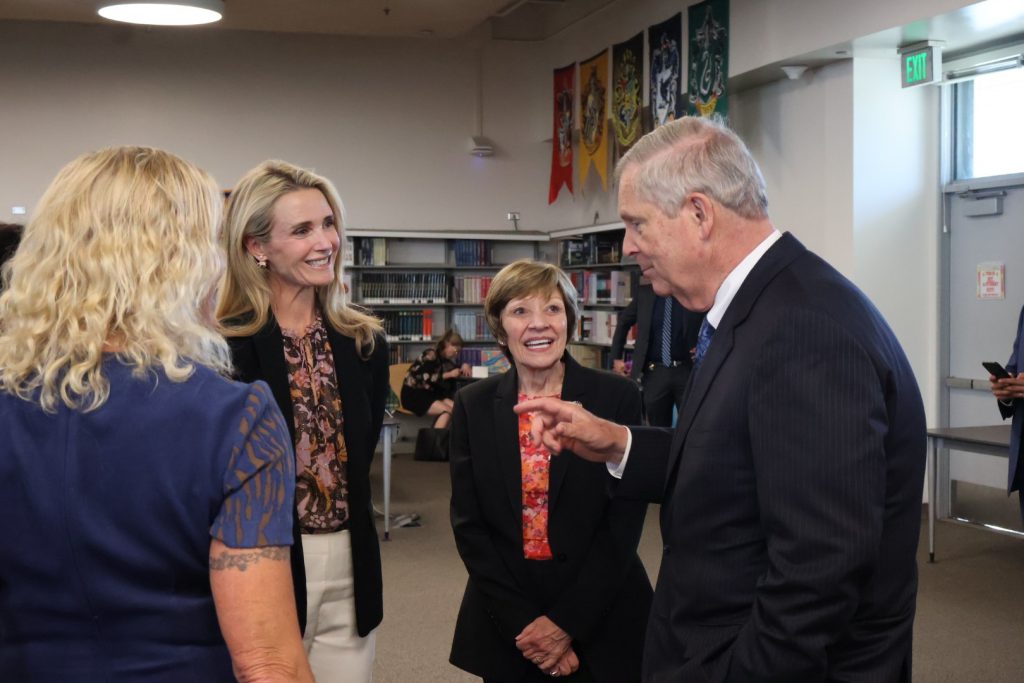
From a News Release by Governor Newsom’s Office
CDFA Secretary Karen Ross joined First Partner Jennifer Siebel Newsom and USDA Secretary Tom Vilsack yesterday afternoon at Sotomayor Academies in Los Angeles, to spotlight the California Farm to School initiative and efforts to ensure all children have access to healthy, nutritious meals while at school.
The visit highlighted farm-to-school efforts underway in California and the role school meals can play in supporting local and regional food systems, mitigating climate change impacts, and providing healthy food to students. It comes just weeks after the U.S. Department of Agriculture (USDA) rolled out new nutritional standards for school meals based the latest science-based recommendations from the Dietary Guidelines for Americans.
California has taken significant actions to strengthen their school meal programs, including:
- In 2022, California became one of the first states to implement universal meals for children at school. Through their Universal Meals Program, the state is building on USDA’s National School Lunch Program and School Breakfast Program, which provide meals to 30 million school children. As of May 2024, eight states have instituted policies to provide healthy school meals at no cost to all students. Expanding those policies nationwide is a key goal of the Biden-Harris Administration’s National Strategy on Hunger, Nutrition, and Health, which committed to ending hunger, improving nutrition, and ending diet-related disease by 2030.
- Launched in 2019, California Farm to School connects school districts with local farms, so they can procure fresh and delicious produce for school meals. To date, the initiative is benefiting over 1.5 million public school students in California at over 163 educational entities.
- USDA’s Patrick Leahy Farm to School Program helps school meal operators incorporate local foods into meal programs. Spearheaded by First Partner Siebel Newsom, California Farm to School has committed to expanding the use of locally grown commodities in school meals and hands-on food education to up to 80% of California students by 2030. The commitment was made by the California Department of Food and Agriculture (CDFA) as part of the White House Challenge to End Hunger and Build Healthy Communities. In pursuit of this expansion, CDFA has partnered with school administrators and built partnerships with local producers and growers to maximize the quantity of locally-sourced produce in California schools.
- USDA has also partnered with the California Department of Education (CDE) under the Local Food for Schools (LFS) Program. In 2022, USDA’s Agricultural Marketing Service signed a $23 million cooperative agreement with CDE to purchase and distribute local and regional foods and beverages for schools while strengthening partnerships with local producers and agricultural operations.
- Additionally, California has signed on to participate in the inaugural year of USDA’s Summer EBT program, which provides qualifying students $120 in grocery benefits to families to purchase food during the summer months when child food insecurity is at its highest.


